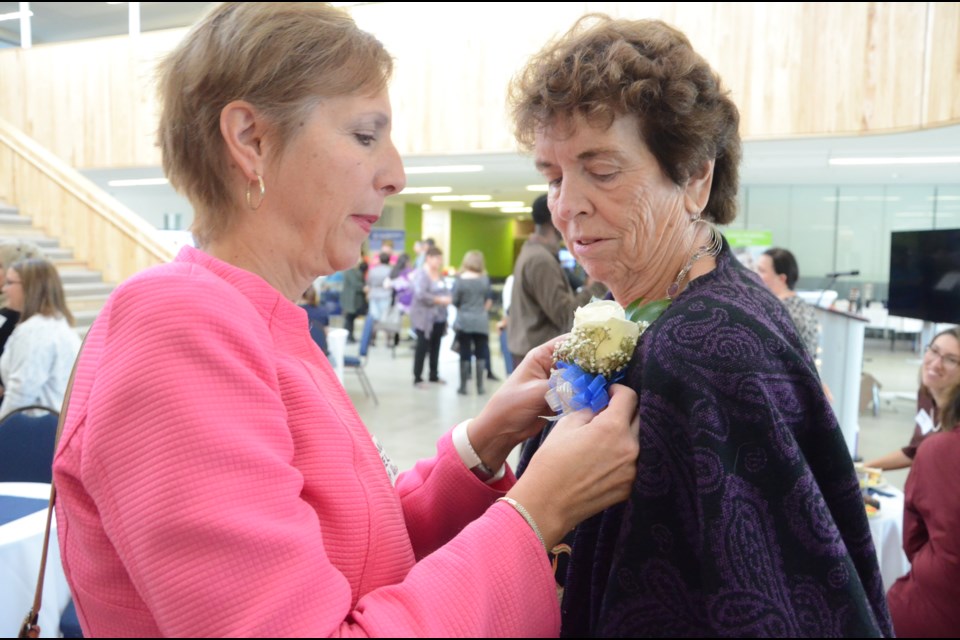Fifty years after they crossed the stage, the ladies from the first graduating class of Laurentian University's School of Nursing know each other just as well as they did when they studied together.
“We love seeing each other,” said Carol Mailloux, one of the 11 graduates from that first class. “We have been getting together every five years since 1971. Our last get together was last year when one of our classmates, Louise Picard, was given an honorary degree from Laurentian.
“We have stuck together all these years, and I think it's because we were the first students in a brand new program that had a lot of people wondering what we were going to do and how it was going to work. Those bonds have lasted all these years.”
Eleven women graduated from the program in 1971, after spending four years studying. The first class had 14 students in total.
On Oct. 20, five of those ladies — including Mailloux — were the guests of honour at the 50th anniversary celebration of the School of Nursing. About 30 graduating classes were represented at the party, and Mailloux was joined by her classmates, Mary Ellen Szadkowski, Mary Sue O'Connor, Joan Bertoli and Mary Carter.
“We all graduated, we all got our degrees, we all got our Registered Nursing papers, and we all got good jobs,” said Szadkowski. “Since we were the first graduating class in Sudbury, there were many jobs available in many different nursing fields, from public health to the Victorian Order of Nurses to hospitals.”
“They were scooping us up,” said Mailloux. “Most of us went on to become head nurses or department managers or co-ordinators. I think it was a very good career, and I would encourage anyone to enter into this field.”
Mailloux said she went into nursing because she enjoyed looking after people.
“I think that's why most people go into nursing,” she said. “They have an inclination to care for others, and they want to help people.”
Szadkowski said she wasn't sure what she wanted to do after high school, so she did some career testing in Grade 13, and it suggested either social work or nursing.
“I felt I was better in the sciences, so I chose nursing,” she said. “I also had a mentor, my mother's friend, in Sault Ste. Marie, who secured a scholarship for me and really encouraged me along.”
While the program was new, it prepared them well for their future careers.
“The diversity of what we did was huge, and it prepared us for our careers,” Szadkowski said. “We're very proud to see all of the graduates who have come after us. Laurentian was particularly good in reaching out to other colleges in Northern Ontario and offering other courses so that people from the North didn't have to go to Toronto for their education.”
The difference in teaching methods over the past 50 years are huge, they both agreed.
“When I first started in nursing, I was practising giving an injection, and we had a glass syringe and a steel needle,” Szadkowski said. “We had to sharpen the steel needle when we were done and put it in the sterilizing bin.
“Today, it's so much different, and it has come a long way. Taking temperatures or blood pressure is pretty much done by machines, with the results displayed on a screen. It's still hands-on today, but they certainly have better tools and technology, and nurses do a lot more today than they did back when we graduated in 1971, they have a much broader scope of skills they need to learn.”
Another significant change over the decades is the amount of research today's nurses do in comparison to 50 years ago.
“We did a minuscule amount of research in our program, but today's students are doing a major amount of research, and it's amazing to watch and see what they come up with.”
